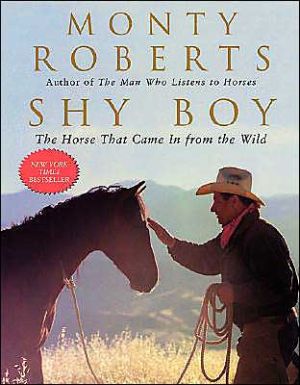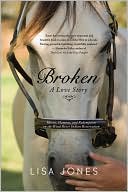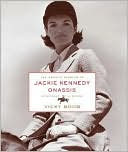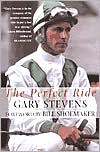Shy Boy: The Horse That Came in from the Wild
"To appreciate Shy Boy," writes horse gentler Monty Roberts, "you must see him or his kind running free and easy, in a wide open space." This compelling story, and the breathtaking photographs that accompany it, offer a chance to do just that. During a dramatic three-day ride across miles of high desert, Monty Roberts used all his skill to connect with the little mustang he finally befriended. In the year that followed, Shy Boy grew to love life on the farm, playfully demanding attention, and...
Search in google:
"To appreciate Shy Boy," writes horse gentler Monty Roberts, "you must see him or his kind running free and easy, in a wide open space." This compelling story, and the breathtaking photographs that accompany it, offer a chance to do just that. During a dramatic three-day ride across miles of high desert, Monty Roberts used all his skill to connect with the little mustang he finally befriended. In the year that followed, Shy Boy grew to love life on the farm, playfully demanding attention, and becoming fascinated by children. After a year of challenges and one frightening illness, the wild horse's exceptional spirit earned the respect and admiration of his trainers. And, as a result of a PBS-aired program based on his initial encounter with Roberts, Shy Boy gained international fame.Yet throughout this extraordinary year, Monty Roberts struggled with the question, "Would Shy Boy rather be free?" With trepidation, he took Shy Boy back to the wild to let him choose. The event, and its stunning conclusion, are memorably captured in these magnificent photographs and in a story that is both unforgettable and inspiring.
Shy Boy's Tribe\ Wild horses have become living symbols--of liberty and beauty and power.\ To appreciate Shy Boy, you must see him or his kind running, free and easy, in a wide-open space. To see what I mean, look at the photograph on pages 198-99: "Shy Boy enjoying a wild gallop on a spring morning." \ A free horse running is a beautiful sight. The long tail high and proud. The mane rising and falling with his rolling step. Domestic horses striding in paddocks, without saddles and riders, are a pleasure to behold. But a mustang herd running through sagebrush, running just to feel the wind: that sight resonates in us all. I have seen it countless times and it always stirs my heart. \ The magnificent herds of wild horses that once roamed the North American Plains in the millions no longer exist. Mustangs are somewhat rare now, and for that reason, cherished. Shy Boy and his tribe have become living symbols--of liberty and beauty and power. \ To some extent we attach to the mustang the same characteristics we would like to see in ourselves: strong, wild at heart, sensitive, graceful--and above all, free. All over the world, people view the wild horse as a noble and romantic animal; in America, especially, the mustang is an icon. \ The Lone Ranger's famous white horse, Silver, we were led to believe, was a mustang stallion wounded by a buffalo and then nursed back to health by the ranger. Old western films had cowboys coming to the rescue of wild horses, who paid them back by accepting the saddle and riding like the wind. \ One automobile manufacturer even named a car after the mustang. The chrome silhouette of the galloping horse--notunlike the image of Shy Boy on pages 198-99--was set in the car's front grill, and the car was pitched to a generation as small, fast, and youthful. \ The odd thing is this: the romantic attachment to mustangs existed even in the minds of pioneers in the nineteenth century, when wild horses on the Plains were as common as sparrows. Matt Field, a traveler on the Santa Fe Trail in 1839, wrote after admiring one striking sorrel stallion that "a domestic horse will ever lack that magic and indescribable charm that beams like a halo around the simple name of freedom. . . . He was free, and we loved him for the very possession of that liberty we longed to take from him." \ After the West had been settled, cattle arrived, fences went up, and the rich grasslands where the mustang roamed were no longer theirs. The herds sought refuge in higher, tougher ground. Ever since then there has been a pitched battle between those who want available land put to practical use (ranching and hunting) and those who want land set aside for the ever-diminishing herds of wild horses. \ Shy Boy's ancestors have long been on the losing side of that old turf war. More than one million wild horses were captured by the government for use in World War I; hundreds of thousands more were taken to abattoirs and used in animal feeds; some were shot for sport. In one especially brutal killing in December 1998, thirty-four free-ranging horses in the foothills of the Virginia Range in Nevada were shot; it was clear from the aftermath that whoever did it meant for the horses to suffer and to die slowly. The atrocity made headlines around the world. In the West there was shock and outrage--on both sides of the mustang issue. A sacred line had been crossed. "It's like somebody desecrating the flag," one Nevada investigator said. \ The mustang has become a kind of conscience of America. What we've done to horses has suddenly become a factor in our lives: the strong link between cruelty to animals and cruelty to people has been well documented. \ It should not surprise that people feel the way they do about horses. No other animal in history has had more impact on our lives than the horse. Millions of horses gave their lives in our wars. They transported settlers in covered wagons across continents, delivered our mail, plowed our fields, cleared our lands, and entertained us with their athleticism on racetracks and show grounds. And during all this time they have provided faithful companionship. \ Shy Boy's ancestors were brought to North America by Spanish conquistadors four centuries ago. In a way, this marked a homecoming for the horse. Horses and their ancestors had developed on this continent 55 million years before; from here they crossed land bridges into Asia and spread to Europe. By the time Columbus landed in North America, the indigenous horse had been extinct for almost fifteen thousand years. No one is really sure why they disappeared. Meanwhile, slowly but surely, Shy Boy's ancestors had circumnavigated the globe. \ Horses abandoned or lost by Spanish cavalry, the troops of the conquistadors, and later by Spanish settlers were the forebears of the mustangs that colonized the wild heartland of the western United States. They were tough horses; they had to be to survive the grueling eight-week journey by ship to the Americas from Spain. Travel in those days was not for the fainthearted, animal or human. \ Some believe that the "horse latitudes" (30 degrees north latitude--the Tropic of Cancer; 30 degrees south latitude--the Tropic of Capricorn), zones where ships were often becalmed, owe their names to this fact: when water ran out and horses on board died of thirst, they were tossed into the sea. The difficulties in transporting livestock across the ocean led the Spanish to establish horse-breeding farms in Cuba. \ Once on land, the horses went to work--as warhorses. Hernando Cortez was recorded as saying that next to God, he owed victory to the horse. Horse and soldier climbed mountains, forded rivers and swamps, battled through impenetrable undergrowth, and fought indigenous peoples every step of the way. If the men were made of iron, the horses were forged of something even stronger.\ \ \ From the Trade Paperback edition.







